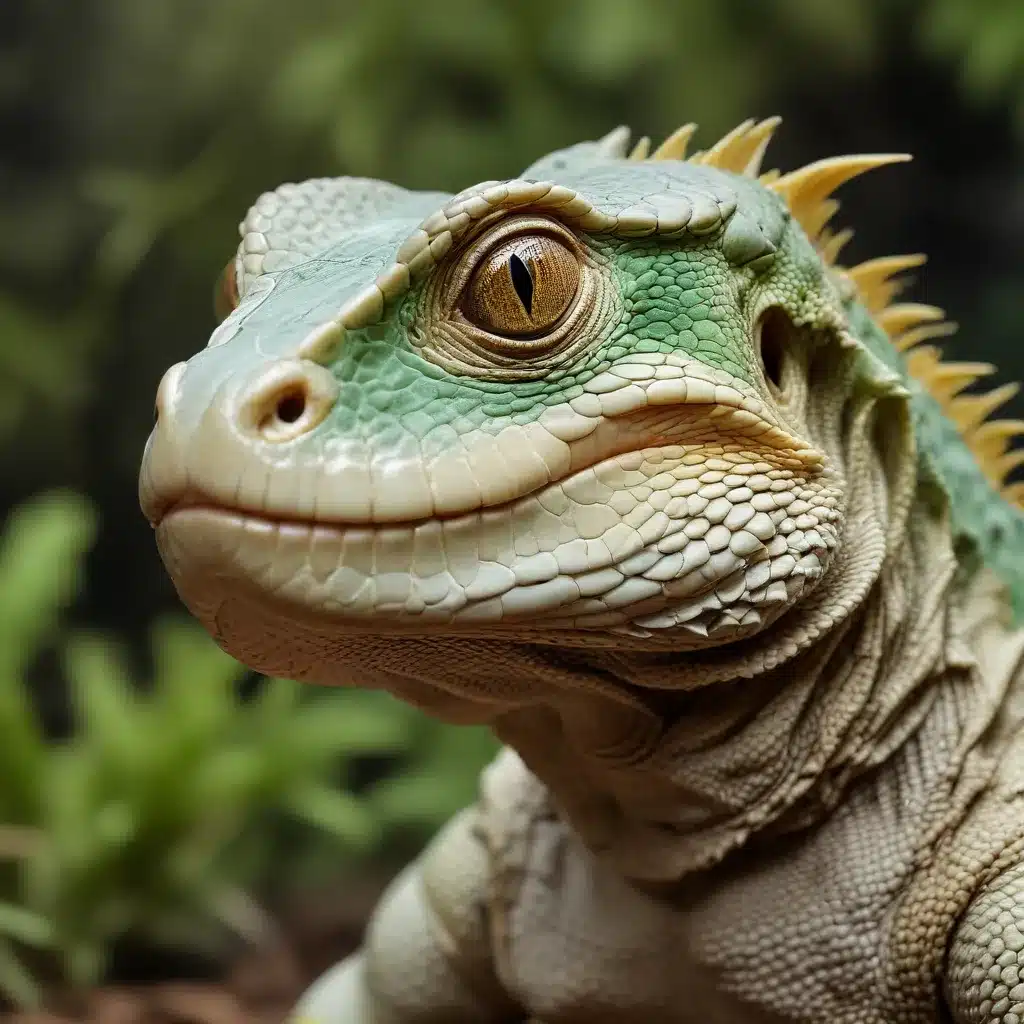
The Importance of Respiratory Health in Exotic Reptiles
Maintaining optimal respiratory function is a critical aspect of providing exceptional care for exotic reptiles. Proper nutrition plays a vital role in supporting a reptile’s respiratory system and ensuring their overall well-being. In this comprehensive guide, we will explore the nuances of reptilian respiration, delve into the impact of dietary factors, and provide practical recommendations for maintaining a healthy respiratory system in your exotic pets.
Understanding Reptilian Respiratory Anatomy and Physiology
Reptilian respiratory systems differ significantly from those of mammals. While mammals possess lungs with alveoli for efficient gas exchange, reptiles have a more primitive respiratory system. Their lungs are typically simpler in structure, with fewer branches and less surface area for gas exchange. This unique anatomy influences the way reptiles breathe and the factors that can impact their respiratory health.
Reptiles rely on a combination of lung ventilation and cutaneous respiration (through their skin) to meet their oxygen demands. The rate and depth of their breathing can vary depending on factors such as activity level, environmental temperature, and stress levels. Maintaining the proper environmental conditions and addressing potential respiratory challenges is crucial for supporting a reptile’s respiratory function.
Nutritional Considerations for Respiratory Health
Optimal nutrition is a cornerstone of maintaining a healthy respiratory system in exotic reptiles. Several key dietary factors have been identified as crucial for supporting respiratory function:
Protein and Amino Acids
Adequate protein intake is essential for the proper development and maintenance of respiratory muscles, including the intercostal muscles that facilitate breathing. Certain amino acids, such as arginine and glutamine, have been found to play a role in supporting respiratory function and immune response.
Vitamins and Minerals
Vitamins A, C, and E, as well as minerals like calcium and phosphorus, are vital for maintaining the structural integrity and function of the respiratory system. Deficiencies in these nutrients can lead to respiratory complications, such as respiratory infections and impaired gas exchange.
Omega-3 Fatty Acids
Research has suggested that omega-3 fatty acids, like those found in fish oils, may have anti-inflammatory properties that can help reduce respiratory inflammation and support overall respiratory health.
Hydration
Proper hydration is crucial for maintaining the moisture levels in a reptile’s respiratory tract, which is essential for efficient gas exchange and the clearance of respiratory secretions.
By tailoring a reptile’s diet to address these nutritional considerations, you can help optimize their respiratory health and reduce the risk of respiratory issues.
Breeding Considerations for Respiratory Health
When it comes to breeding exotic reptiles, maintaining respiratory health is a critical factor. Proper breeding techniques and practices can help ensure the production of healthy offspring with robust respiratory systems.
Genetic Considerations
Certain respiratory conditions, such as respiratory infections and structural abnormalities, can have a genetic component. Responsible breeders should carefully screen their breeding stock for any hereditary respiratory issues and select for individuals with strong respiratory health.
Environmental Factors
The breeding environment plays a significant role in supporting respiratory health. Factors like temperature, humidity, and air quality must be meticulously controlled to create an optimal breeding setting. Inadequate environmental conditions can stress the breeding animals and compromise their respiratory function.
Nutritional Support
Providing a balanced and nutritious diet for the breeding animals is essential for supporting their respiratory health and the development of their offspring. Ensuring that the breeding stock receives appropriate levels of proteins, vitamins, minerals, and other key nutrients can help produce healthy, respiratory-resilient hatchlings.
By incorporating these breeding considerations into your reptile breeding program, you can help produce robust, respiratory-healthy offspring and contribute to the overall well-being of the exotic reptile population.
Legal Requirements and Considerations for Selling Exotic Reptiles
The sale and ownership of exotic reptiles are subject to various legal requirements and regulations. It is crucial for reptile enthusiasts, breeders, and pet owners to be aware of and comply with these guidelines to ensure the responsible and ethical handling of these animals.
Species-Specific Regulations
Different reptile species may be subject to specific legal requirements regarding their possession, sale, and transportation. It is essential to research and understand the regulations pertaining to the particular reptile species you are interested in breeding or selling.
Permits and Licensing
In many jurisdictions, the sale and breeding of exotic reptiles may require specific permits or licenses. Obtaining the necessary permits and ensuring compliance with local and federal regulations is crucial for engaging in the reptile trade legally and responsibly.
Health and Welfare Considerations
Reptile owners and breeders must prioritize the health and well-being of the animals in their care. This includes providing appropriate housing, nutrition, and veterinary care, as well as adhering to regulations regarding the transportation and sale of reptiles.
Record-Keeping and Traceability
Maintaining detailed records of your reptile breeding and sales activities is essential for compliance with legal requirements. Proper documentation can help ensure the traceability of your reptiles and demonstrate your adherence to relevant regulations.
By familiarizing yourself with the legal landscape and following best practices for the responsible handling and sale of exotic reptiles, you can contribute to the overall well-being of the reptile community while avoiding potential legal pitfalls.
Conclusion
Respiratory health is a critical aspect of providing exceptional care for exotic reptiles. By understanding the unique respiratory anatomy and physiology of these animals, and by incorporating best practices in nutrition, breeding, and legal compliance, reptile enthusiasts, breeders, and pet owners can help ensure the long-term well-being of their reptilian companions.
Remember, the health and welfare of your exotic reptiles should always be the top priority. By prioritizing respiratory function through proper nutrition and care, you can help your reptiles thrive and contribute to the responsible stewardship of these fascinating creatures.
For more information on exotic reptile care, breeding, and legal requirements, please visit our website at https://exoticreptilesforsale.com/. Our team of experienced reptile experts is dedicated to providing you with the resources and support you need to become a successful and responsible reptile owner or breeder.

